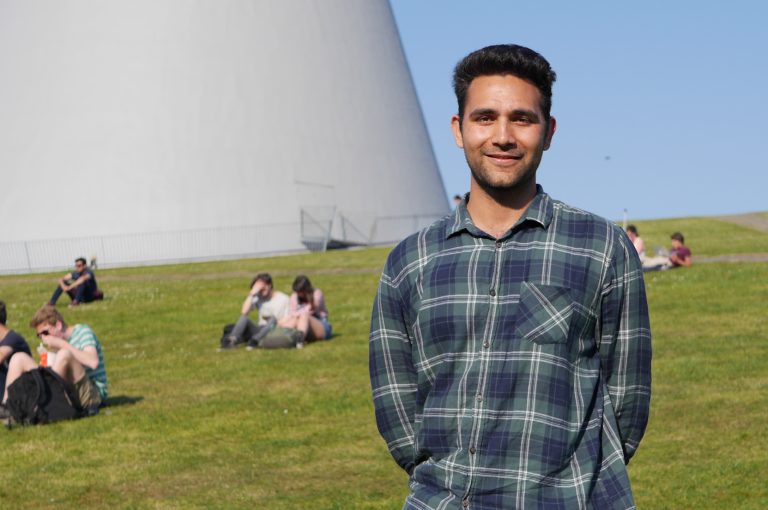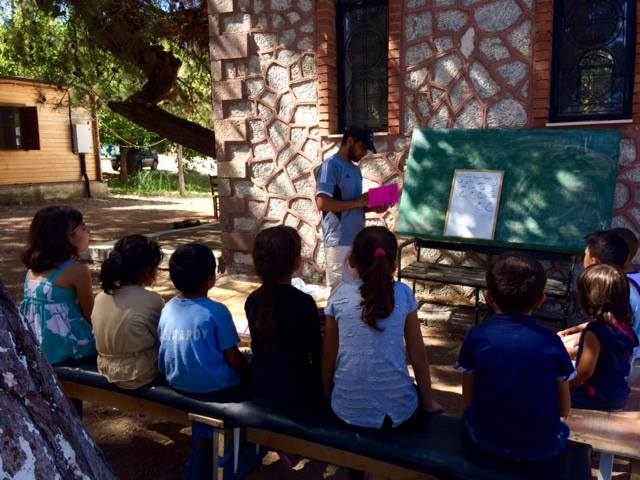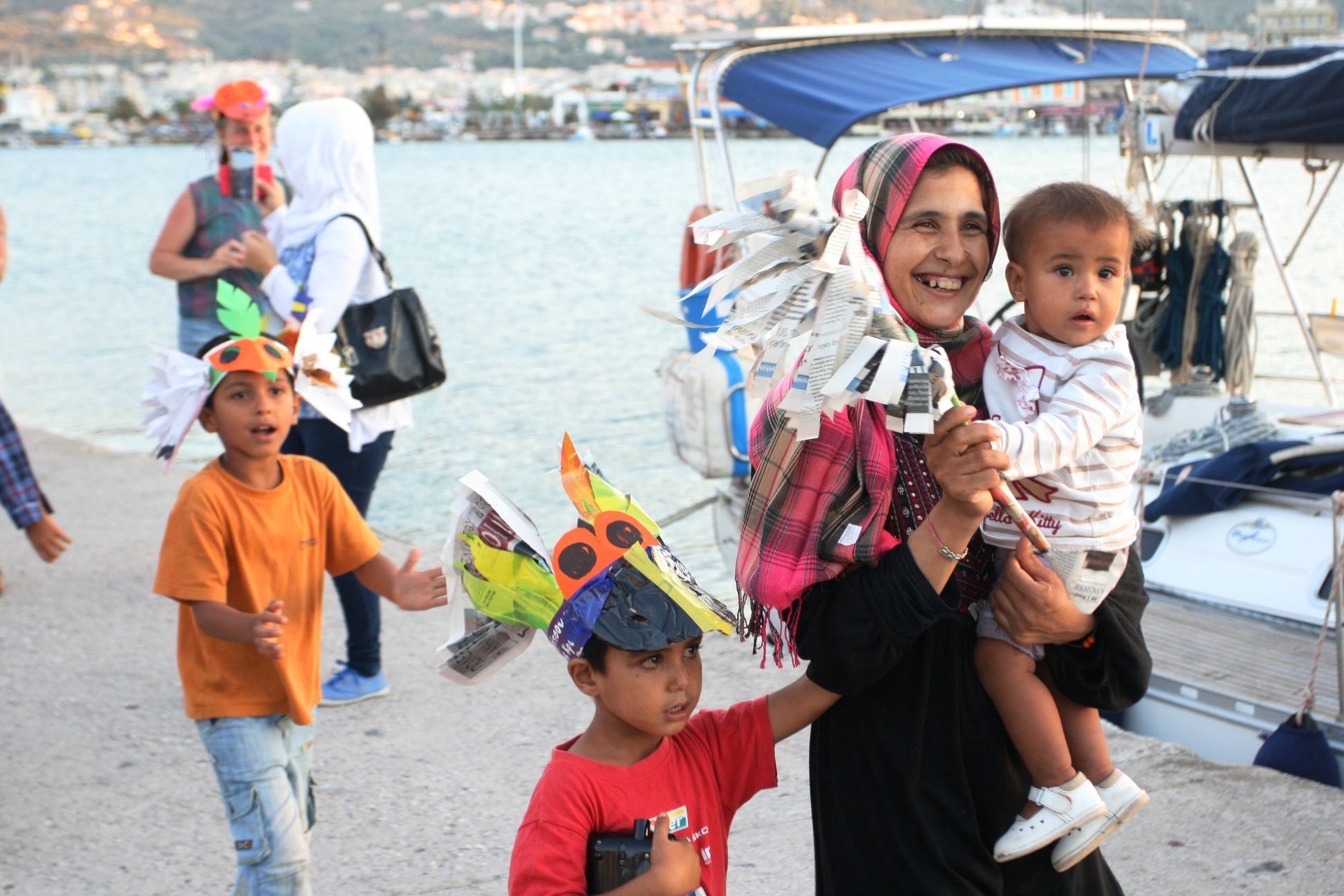Whoever thought the refugee crisis is under control and the refugees don’t need any help anymore, is wrong. Students from Energy for Refugees (EFR) know that and they are bringing solar panels to a small refugee camp on Lesbos that houses children, women and the elderly.
Refugees at Lesbos. (Photo: Energy for Refugees)
The TU Delft Energy Club is hosting the project that started in February and is bringing seven students of different studies and nationalities together to think of solutions for the refugees. How and where was up to the students. They came up with the idea of bringing solar panels to a less well-known camp that isn’t getting much help from big organisations yet.
 Anurag Bhambhani: “Why not help the refugees?” (Photo: Roos van Tongeren)
Anurag Bhambhani: “Why not help the refugees?” (Photo: Roos van Tongeren) “We ended up at PIKPA,” Anurag Bhambhani says. He is one of the students working on the project. “This is a camp where vulnerable refugees end up, such as the elderly, women and children. The other camps are rougher. This camp helps children and women with the transition to Europe, and is a safe and stable shelter for them. For the elderly, it has good heating and air conditioning. All of them lost their normal lives, which could be a problem in the future. They need help to integrate.”
 With the money saved by installing solar panels, education can be improved. (Photo: Energy for Refugees)
With the money saved by installing solar panels, education can be improved. (Photo: Energy for Refugees)The solar panels will save the camp a lot of money on its energy bill, which is now over 10,000 euros a month. “That’s a lot of money that can easily be saved by solar panels,” says Anurag. “Why not help them? We are a technical university and have the knowledge to save a lot of money on energy. That money could, for example, be used to improve education.” Education is also one of the team’s goals for the camp. “We want to involve PIKPA’s residents in installing and maintaining the solar panels.”
Free solar panels
The project was only set up recently. That means that no one knew about it, a handicap when you want to raise money. “The TU, STUD and Students for Sustainability gave us money. That already covered one third of the costs. After that, we asked companies for supplies, for example by having a stand at the All Energy Day. Exasun came with a big surprise – they gave us the solar panels for free!”
When Anurag and his team started the project, it took about two days a week of their time. Now it’s taking three or four days of their week. The return? “We do not get any ECTS, it’s a completely voluntary project.” And if they don’t get enough money from the crowdfunding, they will have to pay for their stay in Greece and their flights themselves. Either way, finishing the project is their priority.
If the project succeeds, a new group of students will start next year. “We want to install forty panels this year. That is enough for seven houses with six people each. The village hosts 23 houses. If it works, the next group can install solar panels at the other houses. Maybe the whole camp will then be solar powered.”
Want to help? The project is still raising money via crowdfunding.
Roos van Tongeren / Redacteur



Comments are closed.